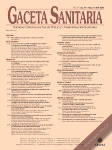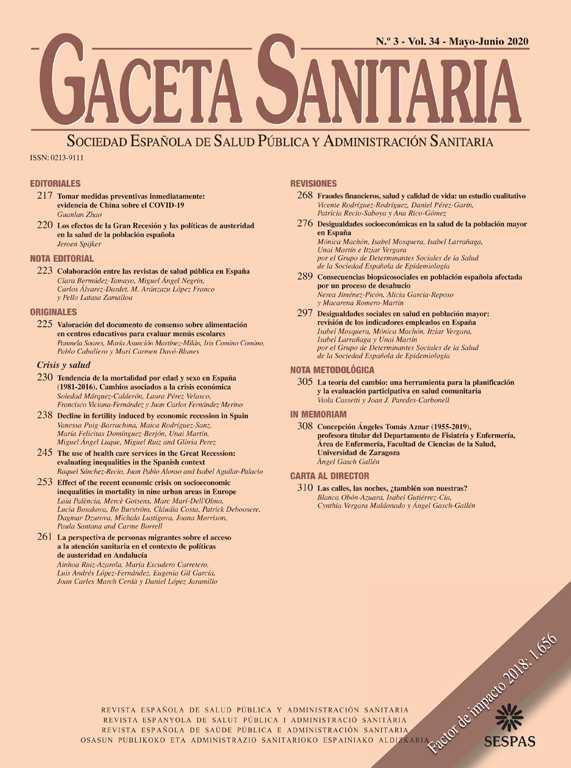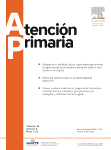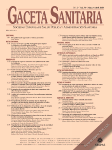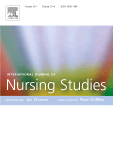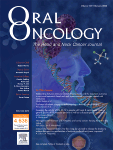Factores asociados a la incidencia y la mortalidad por COVID-19 en las comunidades autónomas
Objetivo Analizar la evolución de la epidemia de COVID-19 después del estado de alarma e identificar factores asociados a las diferencias entre las comunidades autónomas. Método Estudio ecológico que utilizó variables epidemiológicas, demográficas, ambientales y sobre la estructura de los servicios sanitarios como variables explicativas. El periodo de análisis fue desde el 15 de marzo…



